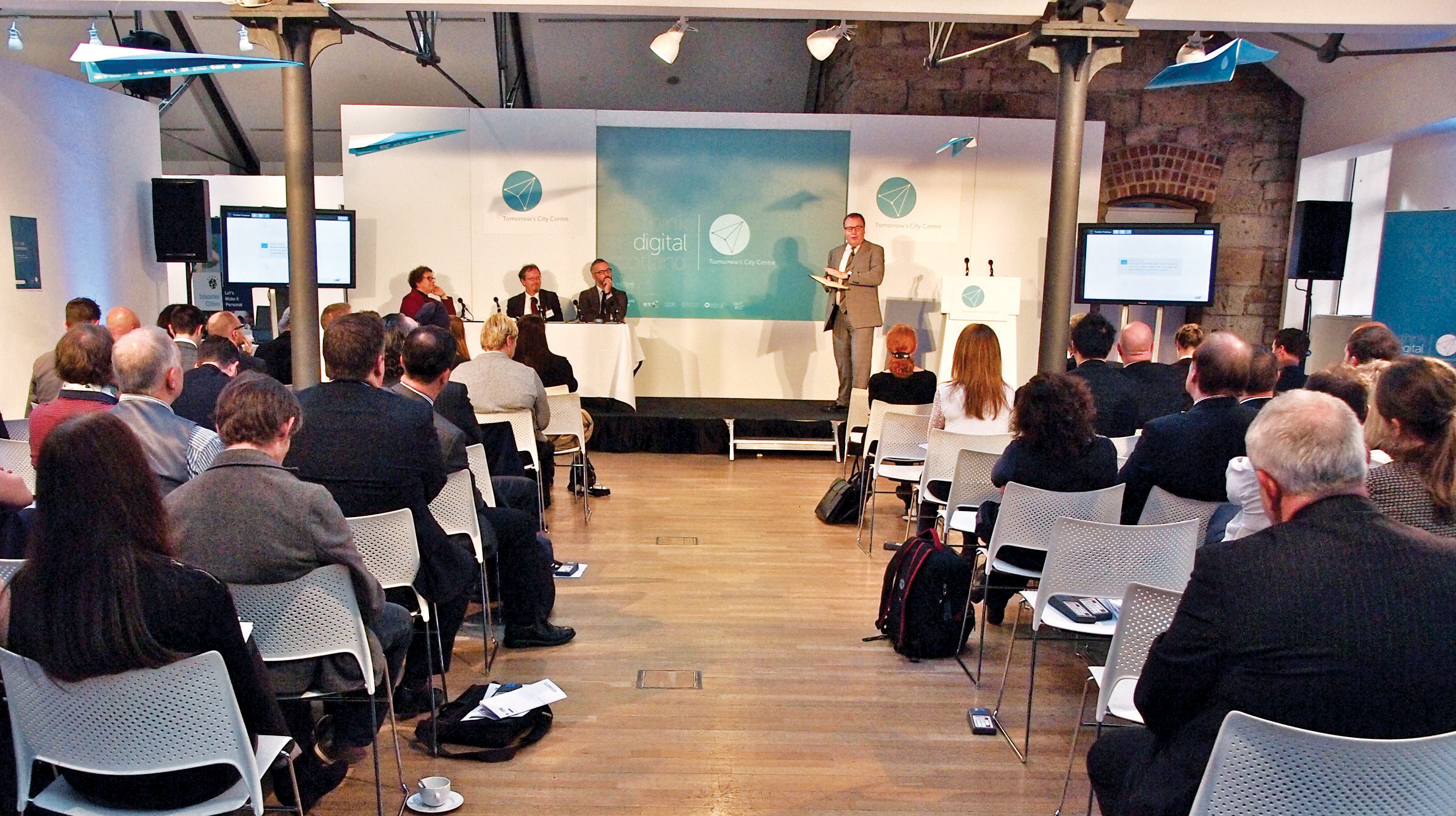People should be put at the heart of Glasgow’s digital strategy, with a clear focus on how emerging technologies can serve citizens, consumers, tourists, entrepreneurs and other city centre users.
That was one of the central thrusts of the Glasgow Chamber of Commerce and Urban Land Institute white paper Tomorrow’s City Centre: Glasgow Agenda that was published recently, following a special two-day event in October 2014.
It says: “Glasgow should be decisive about digital inclusion and think about how it builds its relationships with people. After all, ‘People Make Glasgow’.“
The paper also calls on Glasgow to build on its historical strengths in developing an ambitious vision to become a global leader in the digital age.
It says: “Glasgow has a rich artisan culture and history as a ‘maker of things’ that can be used to help establish itself as a forerunner in digital innovation. The city centre is a great gathering place and needs to leverage digital platforms to continue to be that.”
Setting out what Glasgow city centre should prioritise over the next five years, the white paper urges that data be shared and used efficiently and effectively to respond quickly to what people want from the city centre.
It also says that everything possible should be done to make Glasgow a “hyper-connected city centre”.
Glasgow should “ensure ubiquitous, high-quality wireless and broadband connectivity in order to drive productivity and innovation, and to reach those in the community who are marginalised and not digitally connected to the benefits of the city centre. Over 30% of Glasgow’s population is not digitally connected.
Another key recommendation is calling for measures to encourage the re-use of urban spaces to make them available to artisan, incubator or pop-up businesses.
The paper also calls for moves to encourage more people to live in the city centre and challenges city centre partners to come up with ways that this can be achieved and for it to be allied with measures to improve the childcare provision.
It also urges that a ‘city centre operations group’ be established to respond to the needs of the city in real time, similar to the successful response team formed during the recent Commonwealth Games in 2014.
The white paper calls for investment in ‘smart parking’ technology in the city centre. This will free up time spent in the car looking for a parking space and will allow greater enjoyment of city centre attractions and increased productivity.
It also urges that work be done to find out what should be done to encourage reduced car use in the city centre.
The white paper says: “Glaswegians enjoy driving to and from the city centre and the first task is to make that easier. But in the longer term can better transport solutions incentivise alternatives to car use?”
There is also a call to encourage the innovation economy in the city centre. It calls for moves to “better define the innovation districts in the city centre and their identity and location and also define which districts require more or less regulation.”
The document says: “Rapidly evolving digital technologies are transforming retail, leisure, education, and public administration. The shift to digital platforms for transactions and networking provides a new set of pressures on land uses and the role of physical space.”
It says that digital platforms can change the way that space is used in high streets, in the public realm, in shops, corporate and public offices and small business premises.
“The sectors most impacted by digital platforms are also those that are most strongly clustered in city centres,” the white paper says.
“This means that city centres must adjust to these changes and discover new ways of using space that complement the digital world and are enhanced by it.
“Digital technologies are an opportunity for city centres if they are embraced positively and with imagination and flexibility. They are also a major threat and those city centres which fail to adapt could face stagnation.”
Alison McRae, Projects Director of Glasgow Chamber of Commerce, said: ”The Tomorrow’s City Centre: Glasgow Agenda white paper sets out the changes happening in our city centre and the challenges that they present.
“Over the next five years Glasgow city centre must adjust to these changes and opportunities and develop a confident new approach.
“There is a lot of food for thought and recommendations for specific actions in the white paper to achieve that. We hope that Chamber members, city centre partners and the wider community will read the white paper and act on what it says.”













